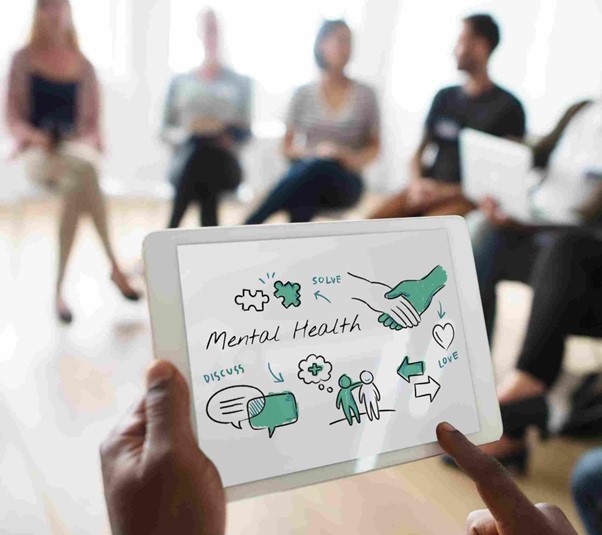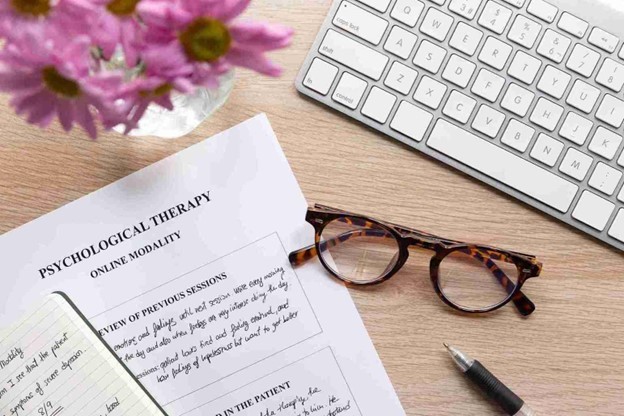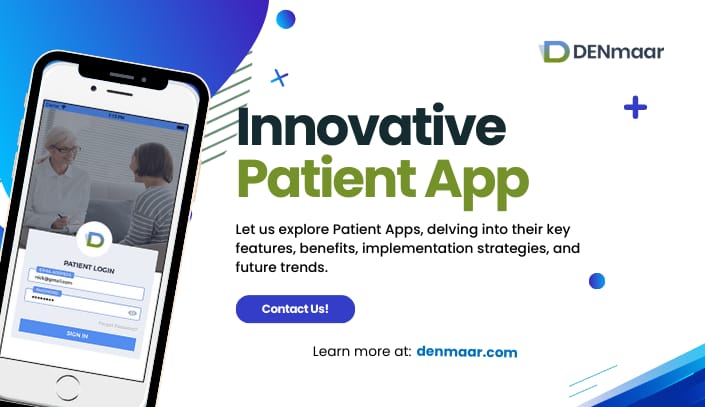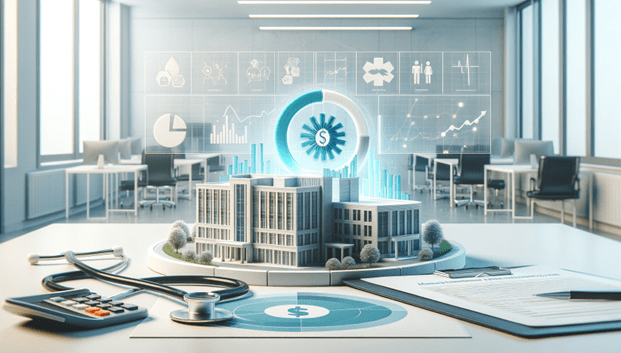As a mental health therapist, you must be spending a lot of your time writing and managing therapy notes. Trust us, you aren’t alone in this.
Writing therapy notes leads to administrative fatigue and diverts your focus from clients. However, to address that, many AI tools are emerging to streamline therapy notes documentation.
With AI mental health progress notes, the overall note-taking is quite simplified, and the chances of error are reduced. But there are some challenges as well.
In a survey conducted of over 800 psychiatrists, it was found that 75% believe AI is likely to perform medical documentation, and 36% of these people trust AI to be beneficial for this purpose.
So, in this article, we will have a balanced overview of using AI in taking therapy notes and conclude whether it’s a recommended approach for your practice.
What Are Progress Notes in Mental Health?

Therapist Taking Progress Notes
Before we discuss the use of AI mental health progress notes, let’s first discuss what progress notes are.
We are sure that you must already be aware of progress notes, also known as therapy notes. However, it’s essential to have a surface-level overview to ensure we are on the same page.
Therapy notes or progress notes are the private notes that mental health professionals take during or after the session for their judgment of a person’s mental health and behavior.
The primary objective of progress notes is to develop a better understanding of the patient’s condition and ensure continuity between different sessions.
Progress notes vary with therapists, as the objective conclusion is often drawn based on subjective thoughts, feelings, and impressions of mental health professionals about the client’s behavior.
These notes generally include:
- Insights about the therapeutic relationship
- Emotional tone
- Potential underlying issues
These notes are useful in making insightful treatment decisions, supporting clinical judgement, and providing a room for therapists to reflect on the session’s deeper meaning.
These notes are part of the client’s official media records and can be accessed by other medical practices, insurance companies, and legal entities as needed.
Challenges of Manual Note-Taking for Therapists
Maintaining accurate and timely progress notes manually is an ongoing challenge that therapists regularly face. This leads to a bigger challenge, which is the quality of therapy and the well-being of the clinician.

Therapist trying to manage writing therapy notes during the session
If we explore the challenges in detail, here are the primary ones:
Time-Consuming Paperwork
Writing detailed notes during the therapy can be quite a task, and most therapists choose to write them after the sessions. However, if there are clients one after another, documentation can spill over into evenings and weekends.
If therapists had to spend less time on writing the documentation, they could take up more clients and achieve their financial potential.
Administrative Burnout
Writing progress notes is a repetitive task that requires more effort than the therapy session itself. Due to that, therapists experience mental tiredness and burnout, leading to a decrease in output.
Inconsistency and Human Error
When therapists try to write progress notes during the session, there are chances of missing out on quite a few things as they have to converse and write the notes at the same time. Therefore, many therapists do the writing after the session, but in that case, they miss out on important details as they write the notes based on their memory of the session.
This even gets worse when there’s an upcoming appointment and you have limited time.
Because of improper therapy notes, the agenda of therapy itself dilutes. As the progress notes are incorrect, it leads to missed patterns in client behavior and important event details, causing incorrect treatment.
Compliance and Legal Risk
It can not only cause issues to the patient but therapists as well. It’s essential for mental health practitioners that therapy notes meet the clinical, ethical, and legal standards.
When progress notes are written poorly, it can cause issues during audits, insurance claims, and legal proceedings.
The Role of AI Mental Health Progress Notes

Taking AI mental health therapy notes
AI mental health progress notes play a significant role for therapists as well as patients. It not only simplifies but also enhances the documentation process at the same time. In this section, we will see the application of AI in documenting mental health notes.
AI-Powered Transcription and Summarization
With AI-powered transcription and summarization software, the therapy session’s conversation gets converted into written text. Some applications can process the speech in real-time and convert it into text right away, and others record the conversation first and process it after it ends.
In both cases, therapists get ready-to-review drafts. Besides the complete transcription, they also provide the therapists with a session summary highlighting the key points based on the standardized format selected (SOAP, DAP, or BIRP).
Natural Language Processing (NLP)
With the use of natural language processing, AI can understand the emotional tone of the session and extract relevant clinical information. They can even highlight patterns, behaviors, and symptoms of different mental health conditions.
This improves the quality of AI mental health progress notes and can be reviewed by mental health practitioners. Based on the review, practitioners can draw conclusions, suggest treatment, and develop a more insightful roadmap for the patient.
Smart Prompts and Auto-Completion
After you review the AI mental health therapy notes, you can edit them as per your understanding and insights. Then, let the AI process it again. It will use its smart prompt tech to suggest improvements, make sentence corrections, and detect missed insights.
In case if their any repeated info or unnecessary details, the tool can highlight that as well. After which, you can give a final review of the document and finalize it.
Custom Templates and Learning Capability
Many AI tools come with predefined templates that can be further customized. For instance, whether you follow CBT, DBT, or trauma-informed care therapy notes structure, AI mental health therapy notes will be written accordingly.
Further, the AI tool continuously learns and improves as per your therapy style and preferred documentation structure, leading to more intuitive and personalized output.
Seamless Integration with Practice Management Systems
Many AI tools integrate with ERHs and practice management tools. Such a capability helps therapists manage notes, billing, and scheduling from one place.
In case of manual therapy notes, the mental health practitioner needed to upload the documentation manually and manage the administrative task without an application. Now, with this feature, documentation itself gets aligned with the practice management system, making the data organization easier.
Maintains Therapist Control
AI can’t replace therapists in any way. Consider it as an assistant to the therapist who writes the therapy notes, while they are in charge of the session.
Therapists still need to review, edit, and approve all the notes to ensure their credibility and accuracy.
Benefits of AI Mental Health Progress Notes
When it comes to the benefits of AI mental health progress notes, it is not only for therapists and clients; it raises the overall quality of mental health therapy. Now, let’s check its benefits in detail.
Significant Time Savings
When you have AI mental health progress notes by your side, you don’t need to spend time writing the documentation between the sessions, after the day ends, or on weekends, as it’ll automatically be completed during the session or immediately after it.
Reduces Cognitive Load and Burnout
As it saves time, it improves work-life balance for sure. Another way by which AI therapy notes achieve it is by saving the therapist from burnout. By automating repetitive tasks, AI helps therapists save their mental energy.
Improves Accuracy and Completeness
AI mental health progress notes eliminate the errors that humans make. The documentation is free from vague language, missed details, and formatting errors. Besides that, they ensure therapy notes meet the required standards and all essential components of the session are captured.
Enhances Clinical Consistency
Mental health practitioners can maintain consistent language, structure, and documentation practices across clients. It improves communication with supervisors, peers, or insurers.
Supports Legal and Ethical Compliance
When AI tools take mental health therapy notes, they come with built-in prompts for required information, time-stamping (when the session is taken), and audit-ready formats.
Generally, the tools are designed to comply with HIPAA, GDPR, and insurance regulations. While going for an AI tool, it’s important to ensure that it complies with the state regulations as well.
How DENmaar Can Help You in AI Mental Health Progress Notes?
DENmaar is a state-of-the-art application that goes beyond simple documentation. Our powerful, integrated application is designed for mental health practitioners and substance abuse professionals.
From customer AI mental health progress notes to automating the administrative tasks, DENmaar aims to eliminate repetitive tasks and provide a significant boost to your mental health practice.
Specifically speaking of DENmaar’s ability in AI-enhanced progress notes, you get personalized, compliant, and intuitive progress notes, tailored to your unique clinical style.
What’s our impact?
We help you save hours of manual entry, reduce errors, and maintain consistent, accurate documentation across sessions.
Besides this feature, DENmaar also offers exceptional workflow optimization features such as:
- Automating tasks: appointment scheduling, reminders, and staff assignments.
- Create practice-specific workflows
- Centralized messaging and real-time alerts.
Conclusion
The approach of mental health professionals towards therapy notes is transforming and getting better. It used to consume a lot of time, and repetitive tasks led to burnout; there was no work-life balance. However, with the introduction of AI mental health progress notes, they are now able to take more patients and put better focus.
Platforms like DENmaar show how AI tools for therapy notes are a crucial part of integral systems. When multiple apps, such as CRM, workflow automation, billing services, and AI documentation tools, combine, it can elevate both the clinical and business side of mental health practices.




























